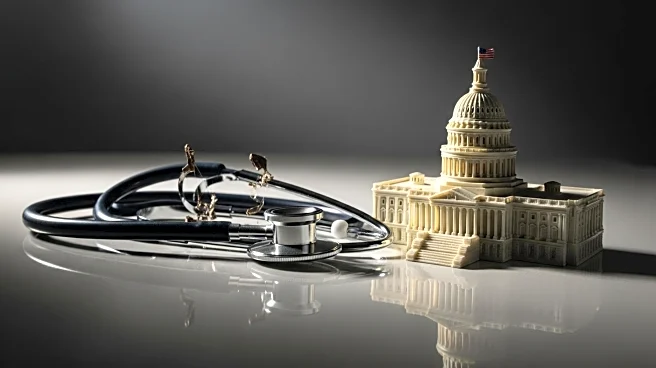What is the story about?
What's Happening?
The United States has entered a government shutdown following a failure by President Trump and Congress to reach an agreement on federal funding. The deadlock arose from a disagreement over health care subsidies, with Democrats demanding the extension of tax credits under the Affordable Care Act, which are set to expire at the end of the year. These credits have been crucial in making health insurance more affordable for millions since the COVID-19 pandemic. The shutdown has resulted in the furlough of numerous federal employees, including a significant number of staff in the Executive Office of the President, although critical functions continue with reduced staffing.
Why It's Important?
The government shutdown has significant implications for various sectors and stakeholders. The expiration of health care subsidies could lead to a substantial increase in insurance premiums, affecting millions of Americans who rely on these credits for affordable health care. The shutdown also disrupts federal services and could have economic repercussions, particularly if it extends for a prolonged period. Political blame is being cast on both sides, with Democrats and Republicans each accusing the other of intransigence. The situation underscores the deep partisan divides in Congress and the challenges in reaching consensus on critical policy issues.
What's Next?
Negotiations are expected to continue as both parties seek a resolution to reopen the government. There is potential for a compromise involving a temporary extension of the health care subsidies, but significant hurdles remain. The shutdown's duration will depend on the willingness of both parties to negotiate and make concessions. The impact on federal employees and services will intensify if the shutdown persists, increasing pressure on lawmakers to find a solution.
Beyond the Headlines
The shutdown highlights broader issues of governance and the challenges of managing a divided government. It raises questions about the effectiveness of current political strategies and the potential need for reforms to prevent such impasses in the future. The situation also reflects ongoing debates about the role of government in providing health care and the balance between fiscal responsibility and social welfare.
















